Mercedes EQA VS VW ID.4
In the competitive landscape of electric SUVs, the Mercedes EQA and VW ID.4 stand out with their unique offerings. The EQA impresses with its luxury features and premium interior, making it a strong contender for those seeking a sophisticated driving experience. On the other hand, the ID.4 excels in practicality and range, appealing to budget-conscious consumers looking for a spacious and eco-friendly option.
Mercedes EQA
The Mercedes-Benz EQA presents a refined blend of elegance and electric performance, perfectly suited for urban environments. Its sleek and modern design emphasises aerodynamic efficiency while providing a sumptuous interior that epitomises luxury and comfort. With advanced technology seamlessly integrated into its user-friendly interface, the EQA ensures a connected and enjoyable driving experience.
detailsVW ID.4
The VW ID.4 represents Volkswagen's commitment to the electric vehicle market, combining contemporary design with sustainability. Its spacious interior and intuitive technology make it an attractive choice for those seeking comfort and innovation in an eco-friendly package. With a focus on electric performance and practicality, this car is set to be a popular option among environmentally-conscious drivers.
detailsIntroduction: The Electric SUV Showdown
As the automotive world shifts towards sustainability, electric SUVs have emerged as front-runners in the market. Two contenders that have drawn significant attention are the Mercedes EQA and VW ID.4. Offering unique features, tech-savvy innovations, and impressive specifications, these models provide exciting prospects for eco-conscious consumers. In this article, we’re comparing the EQA and ID.4 across multiple factors including performance, range, technology, and design.
Performance and Powertrain
The Mercedes EQA offers a range of power options, from 190 HP in the base model to a robust 292 HP in its performance variant. With front-wheel and all-wheel drive configurations, the EQA offers excellent handling and acceleration, achieving 0-100 km/h in as little as 6 seconds.
In contrast, the VW ID.4 presents different power outputs, with options ranging from 170 HP to a powerful 340 HP for the performance model. The acceleration figures are equally impressive, with the quickest ID.4 variant reaching 0-100 km/h in just 5.4 seconds. Both SUVs feature an automatic transmission with a reduction gearbox, enhancing efficiency and driving pleasure.
Electric Range and Efficiency
When it comes to electric range, the Mercedes EQA shines with an impressive maximum range of up to 561 km, depending on the configuration. Its battery capacity ranges from 66.5 to 70.5 kWh, achieving consumption figures as low as 14.4 kWh per 100 km.
The ID.4, on the other hand, boasts a slightly longer range in some variants, reaching up to 572 km with its 77 kWh battery. The energy consumption is competitive as well, ranging from 15.8 to 16.8 kWh per 100 km. These figures are crucial for consumers concerned about range anxiety, as both vehicles provide options suitable for daily commuting and longer journeys.
Interior Space and Comfort
Inside the EQA, drivers and passengers can enjoy a luxurious environment with a spacious trunk capacity of up to 340 liters. The interior quality is premium, reflecting Mercedes-Benz's commitment to comfort and style, with generous seating for five adults.
The VW ID.4 offers more cargo space, with a notable trunk capacity of 543 liters, making it a practical choice for families and adventurers alike. The cabin is designed for usability, featuring a modern layout that emphasizes technology and space, while also accommodating five occupants comfortably.
Innovative Technology and Features
Innovative technology is a hallmark of both the Mercedes EQA and VW ID.4. The EQA boasts the MBUX infotainment system, which offers voice-activated commands, intelligent navigation, and a sophisticated touchscreen interface. Mercedes also includes advanced driver assistance systems, enhancing safety and ease of driving.
Conversely, the ID.4 features VW's ID. cockpit, including an intuitive digital display and an emphasis on connectivity. Additionally, VW incorporates functionalities like augmented reality head-up display and various driver assistance technologies that ensure a confident driving experience.
Conclusion: Which One Will You Choose?
Choosing between the Mercedes EQA and VW ID.4 ultimately comes down to personal preference and driving needs. The EQA represents luxury and performance with its superior range and high-end features, ideal for those who seek a plush driving experience. In contrast, the ID.4 emphasizes practicality, space, and an impressive electric range, catering to families and those who regularly transport cargo.
Both vehicles are exemplary in the competitive landscape of electric SUVs, offering drivers exceptional modern features and eco-friendly efficiency. As the market continues to expand, these models both set a significant benchmark for future electric vehicles.
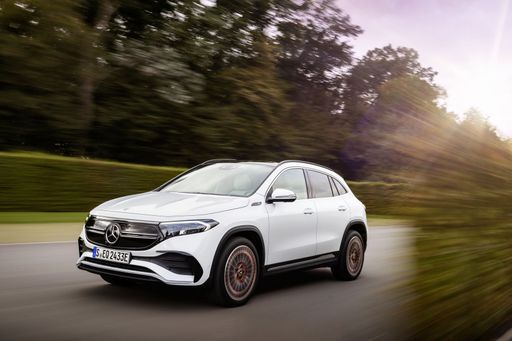 @ group-media.mercedes-benz.com
@ group-media.mercedes-benz.com
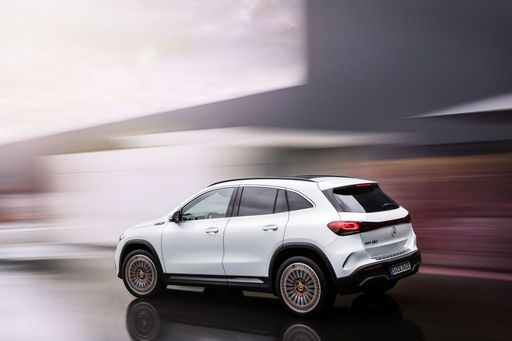 @ group-media.mercedes-benz.com
@ group-media.mercedes-benz.com
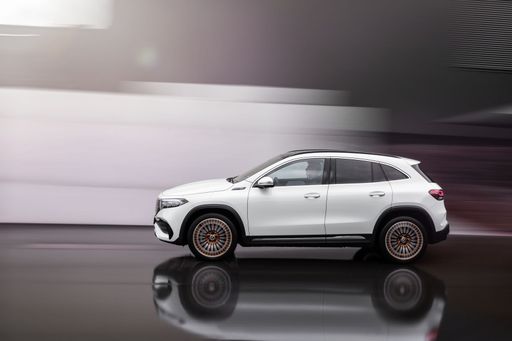 @ group-media.mercedes-benz.com
@ group-media.mercedes-benz.com
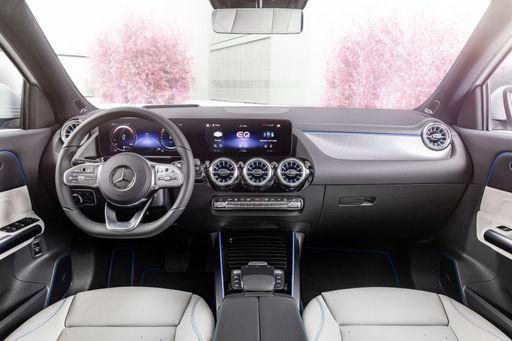 @ group-media.mercedes-benz.com
@ group-media.mercedes-benz.com
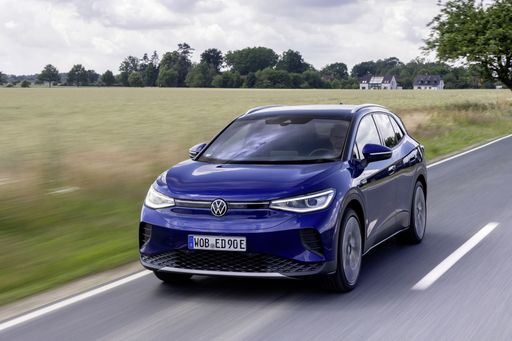 @ Volkswagen
@ Volkswagen
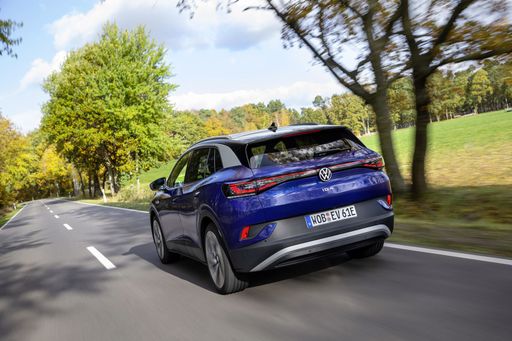 @ Volkswagen
@ Volkswagen
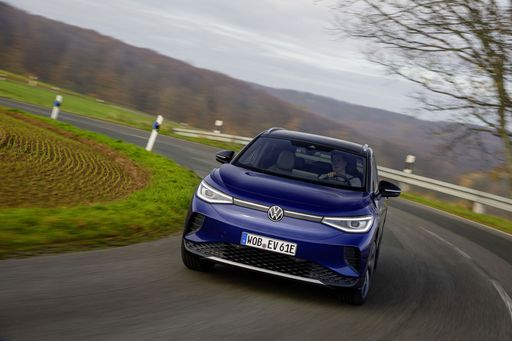 @ Volkswagen
@ Volkswagen
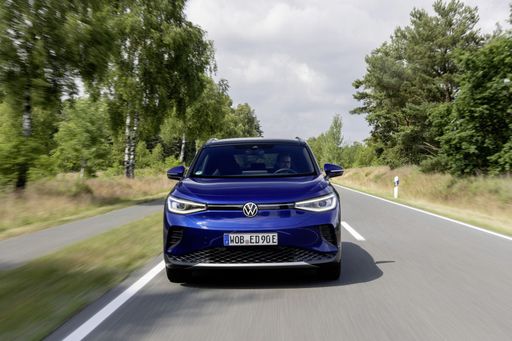 @ Volkswagen
@ Volkswagen
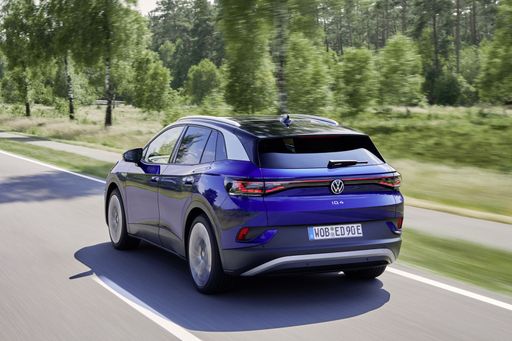 @ Volkswagen
@ Volkswagen
 @ Volkswagen
@ Volkswagen
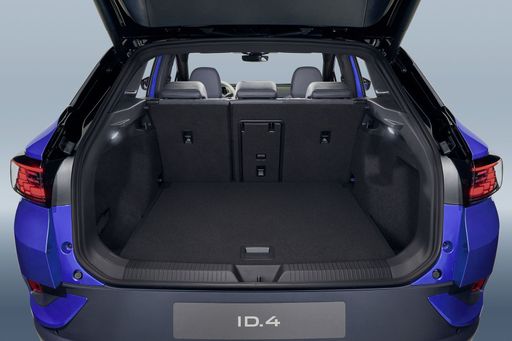 @ Volkswagen
@ Volkswagen
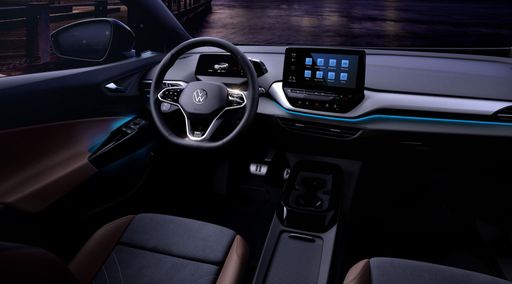 @ Volkswagen
@ Volkswagen

|

|
|
|
|
Costs and Consumption |
|
|---|---|
|
Price
about 46900 - 61900
$
|
Price
about 37300 - 50400
$
|
|
Consumption L/100km
-
|
Consumption L/100km
-
|
|
Consumption kWh/100km
14.4 - 16.9
kWh
|
Consumption kWh/100km
15.8 - 16.8
kWh
|
|
Electric Range
458 - 561
km
|
Electric Range
357 - 572
km
|
|
Battery Capacity
66.5 - 70.5
kWh
|
Battery Capacity
52 - 77
kWh
|
|
co2
0
g/km
|
co2
0
g/km
|
|
Fuel tank capacity
-
|
Fuel tank capacity
-
|
Dimensions and Body |
|
|
Body Type
SUV
|
Body Type
SUV
|
|
Seats
5
|
Seats
5
|
|
Doors
5
|
Doors
5
|
|
Curb weight
2045 - 2115
kg
|
Curb weight
1979 - 2261
kg
|
|
Trunk capacity
340
L
|
Trunk capacity
543
L
|
|
Length
4463
mm
|
Length
4582 - 4584
mm
|
|
Width
1834
mm
|
Width
1852
mm
|
|
Height
1608 - 1613
mm
|
Height
1619 - 1634
mm
|
|
Payload
425
kg
|
Payload
509 - 541
kg
|
Engine and Performance |
|
|
Engine Type
Electric
|
Engine Type
Electric
|
|
Transmission
Automatic
|
Transmission
Automatic
|
|
Transmission Detail
Reduction Gearbox
|
Transmission Detail
Reduction Gearbox
|
|
Drive Type
Front-Wheel Drive, All-Wheel Drive
|
Drive Type
Rear-Wheel Drive, All-Wheel Drive
|
|
Power HP
190 - 292
HP
|
Power HP
170 - 340
HP
|
|
Acceleration 0-100km/h
6 - 8.6
s
|
Acceleration 0-100km/h
5.4 - 9
s
|
|
Max Speed
160
km/h
|
Max Speed
160 - 180
km/h
|
|
Torque
385 - 520
Nm
|
Torque
310 - 679
Nm
|
|
Number of Cylinders
-
|
Number of Cylinders
-
|
|
Power kW
140 - 215
kW
|
Power kW
125 - 250
kW
|
|
Engine capacity
-
|
Engine capacity
-
|
|
Top speed
160
km/h
|
Top speed
160 - 180
km/h
|
General |
|
|
Model Year
2024
|
Model Year
2023 - 2024
|
|
CO2 Efficiency Class
A
|
CO2 Efficiency Class
A
|
|
Brand
Mercedes-Benz
|
Brand
VW
|
Mercedes EQA
An Introduction to the Mercedes-Benz EQA: A Glimpse of the Future
The Mercedes-Benz EQA stands at the forefront of automotive innovation, representing a harmonious blend of luxury, performance, and sustainability. As part of the prestigious EQ range, this all-electric SUV embodies the essence of modern electromobility. In this article, we delve into the technical sophistication and innovative features of the EQA that make it a standout choice in the electric vehicle market.
Under the Bonnet: Powertrain and Performance
The Mercedes-Benz EQA offers a versatile range of specifications to cater to various preferences and requirements. From the agile front-wheel-drive models to the more robust all-wheel-drive versions, the EQA provides a wide spectrum of power outputs ranging between 190 PS and 292 PS. This impressive power comes alongside an efficient energy consumption of 14.4 to 16.9 kWh/100km, offering an electric range of up to 561 km, making it suitable for both city commutes and longer journeys.
Intelligent Design and Efficiency
Designed to achieve optimal aerodynamics, the EQA's exterior combines elegance with efficiency. Its streamlined dimensions feature a length of 4,463 mm, a width of 1,834 mm, and a height ranging from 1,608 to 1,613 mm. The adaptive use of materials ensures a competitive gross weight of 2,045 to 2,115 kg while maintaining a remarkable 0 g/km CO2 emission, indicative of its commitment to sustainable driving.
Interior Comfort and Technological Innovation
Inside, the EQA is designed to offer maximum comfort and state-of-the-art technology. It accommodates up to five passengers with ample room and a boot capacity of 340 litres. The advanced MBUX (Mercedes-Benz User Experience) system is at the heart of the cabin, enabling intuitive interaction through voice or touch controls, ensuring that every journey is as convenient as it is connected.
Safety and Driving Assistance
Safety is paramount in the EQA, with an array of driver assistance systems to enhance security on the road. From adaptive cruise control to active lane-keeping assist, the EQA's suite of safety features ensures a secure and confident driving experience. These systems are integrated seamlessly, offering peace of mind without compromising on the joy of driving electric.
Cost and Value Proposition
With starting prices ranging from €50,777 to €66,961, the EQA positions itself as a cost-effective luxury electric SUV. The investment is further justified by its minimal running costs, with monthly expenses between €1,179 and €1,496 and a cost per km between 47.2 and 59.9 cents. This competitive pricing is complemented by its maintenance savings, making it a prudent choice for those making the transition to electric mobility.
Conclusion: A New Era of Electric Luxury
The Mercedes-Benz EQA exemplifies a fusion of luxury, sustainability, and cutting-edge technology. Its impressive range, intelligent design, and advanced features embody the future of electric vehicles. Whether you seek efficiency, style, or state-of-the-art innovation, the Mercedes-Benz EQA offers all this and more, marking a significant milestone in the evolution of electric driving.
VW ID.4
The VW ID.4: A Leap into the Electric Era
As electric vehicles steadily capture the automotive market, the Volkswagen ID.4 stands as a testament to impressive innovation and functionality. Combining eco-friendly technology with the practicality of an SUV, the VW ID.4 is designed to appeal to both environmentally conscious drivers and those seeking versatility in their vehicle choice. In this article, we'll explore the significant technical features and innovations that make the ID.4 a remarkable option in the electric vehicle market.
Powertrain Options: Efficiency Meets Performance
The Volkswagen ID.4 offers a range of powertrain options to suit various driving preferences. With power outputs ranging from 170 to 340 PS and torque figures between 310 and 679 Nm, the ID.4 provides a versatile driving experience. Whether you opt for the responsive rear-wheel drive or the enhanced stability of the all-wheel-drive configuration, each model guarantees smooth and efficient performance.
With an emphasis on efficiency, the ID.4 boasts a consumption rate between 15.8 and 16.8 kWh/100km, making it an economical choice for those mindful of their energy usage. Furthermore, the ID.4 offers a robust driving range, with potential distances reaching up to 572 km, reducing the need for frequent recharging and allowing for longer journeys with peace of mind.
Charging and Battery Technology
Efficiency isn't the only strong suit of the ID.4—the battery technology is equally impressive. With a battery capacity ranging from 52 to 77 kWh, Volkswagen ensures that drivers can match their vehicle choice to their lifestyle needs. Charging is straightforward and adaptable, providing convenience whether at home or on the move.
The ID.4 is designed for compatibility with a variety of charging infrastructure, ensuring rapid charging times and minimal downtime. This thoughtful engineering ensures that drivers spend more time on the road and less time waiting at charging stations.
Design and Practicality: An SUV with a Mission
The VW ID.4 embraces its SUV heritage, offering ample interior space and practicality without compromising on style. With its dimensions ranging from 4582 to 4584 mm in length, 1852 mm in width, and up to 1634 mm in height, the ID.4 ensures a comfortable and spacious environment for up to five passengers.
Additionally, the ID.4 provides a generous boot space of 543 litres, making it ideal for families or those with an active lifestyle requiring extra storage. The careful consideration in design extends to weight efficiency, with the vehicle's own weight between 1979 and 2261 kg helping to enhance its overall drive dynamics and efficiency.
Innovative Features and Technology
Volkswagen has equipped the ID.4 with a suite of advanced technological features designed to enhance both safety and driving enjoyment. These features include intuitive infotainment systems, driver-assistance technologies, and connectivity options tailored to modern expectations.
One standout attribute of the ID.4 is its commitment to sustainability with a CO2 efficiency class of A, demonstrating Volkswagen's dedication to reducing environmental impact without sacrificing performance or functionality.
Conclusion: The Future is Electric
The VW ID.4 is a shining example of how traditional automotive excellence adapts to contemporary demands for sustainability and efficiency. Whether you are an enthusiastic early adopter of electric vehicles or simply someone in search of a reliable and advanced SUV, the ID.4 offers a compelling package designed for the future.
For anyone ready to embrace the electric revolution, the Volkswagen ID.4 represents a significant step forward—a combination of forward-thinking technology, efficient design, and an emphasis on practicality. This makes the ID.4 a worthy consideration for any discerning driver looking to invest in their next vehicle.
